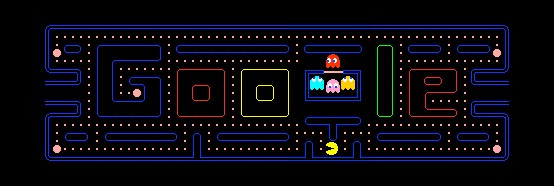Since its release in 1980, Pac-Man has become one of the most iconic video games of all time. Created by Namco and distributed by Atari in Japan and the United States, Pac-Man has been a global phenomenon for over forty years. Pac-Man has had a significant impact on popular culture, influencing the music, film, and television industries, as well as the gaming industry. From its influence on the development of 3D gaming to its impact on the way people consume entertainment, Pac-Man has revolutionized the way people play and interact with video games. Pac-Man has been credited with introducing arcade-style gaming to the masses and helping to shape the gaming industry as we know it today.
Overview of Pac-Man
The game Pac-Man was released in Japan in 1980 and in the United States in 1981. It was developed by Namco and distributed by Atari. Pac-Man is a maze game that features four main characters: Pac-Man, Mrs. Pepper, Blinky, Pinky, Inky, and Clyde. Pac-Man’s objective is to collect all the pellets in the maze while avoiding the ghosts and eating the fruits that appear. The objective of the ghosts is to catch Pac-Man and eat the pellets. The first person or team to reach the 2600th level or complete the level limit is declared the winner. The game ends when all the players lose all of their lives. Pac-Man is one of the most influential and iconic games in gaming history.
History of Pac-Man
Pac-Man, released in 1980, was created by Toru Iwatani, who started working at Namco in 1972 as a pinball designer. He soon moved to design games for the company’s new arcade games division, which was set up in response to the growing popularity of arcade games in Japan. Iwatani’s inspiration for Pac-Man came from a pizza with a slice missing that he had seen in a Japanese cartoon. He took the slice missing from the pizza and imagined a character eating it. He hoped to create a game that was easily understandable and had broad appeal, which was not limited to a particular age group. He also wanted to create an arcade game that families could play together.
Over the years, there have been many versions of Pacman released, each with new levels and different graphics. The original version of Pacman was followed by Ms. Pacman in 1981. Other versions include Pacman Plus, Super Pacman, Pacmania, and Pac-Land.
Google Pac-Man 30th Anniversary Edition

Released by Google back in 2010, The Google Pac-Man 30th Anniversary Edition can be enjoyed for fans of the original game, as well as newcomers who want to experience the classic gameplay. Players must make their way through the maze, collecting points and power pellets to make it to the next level. If you manage to reach level 256, you’ll be treated to a special anniversary message. The game is available on Google Chrome in both desktop and mobile versions, allowing fans to play the game anywhere. It’s also possible to share your high score with friends and family, making the game even more fun and competitive.
Impact on the Gaming Industry
When Pac-Man was released in 1980, it was credited with introducing arcade-style gaming to the masses and helping to shape the gaming industry as we know it today. Pac-Man’s success had a lot to do with its simplicity and approachability—it was easy to pick up and play, and appealed to a broad demographic. It was also the first arcade game that allowed more than one player to play at once, as opposed to previous games such as Pong, which only allowed for one-on-one gameplay. This contributed to its unprecedented popularity, and helped to shape the arcade gaming industry into something much different from what it was before Pac-Man was released.
Impact on Pop Culture
The immense popularity of Pac-Man is credited with bringing arcade-style gaming and video games into the mainstream. It has had such a significant impact on popular culture that “Pac-Man” has become synonymous with video games in general. Its influence can be seen in a variety of different areas, including music, film, and television. Pac-Man has also inspired a number of notable tributes and remakes, including the movies Wreck-It Ralph and Pixels, the TV show The Simpsons, and the music video “Kids” by MGMT.
Impact on Music
Pac-Man’s arcade game theme was released as a single in 1981, and it became a chart-topping hit, selling over three million copies by 1982. It was the first video game theme song to top the Billboard Hot 100 chart and has been credited with helping to launch the music single for pop and rock. Pac-Man’s success as a music single has been attributed to its catchy and easy-to-remember melody. It also helped to popularize the use of synthesizers and drum machines in pop music, and was one of the first pop singles to use a drum machine.
Impact on Film and Television
Pac-Man has had a significant impact on film and television. In addition to inspiring the video game-themed Wreck-It Ralph and Pixels, the game has been referenced in a number of TV shows. The Pac-Man television series was released in 1982, and was the first Japanese-produced animated series to be shown on American television. Pac-Man has also appeared in many films and TV shows as a cultural reference, including The Simpsons, Sesame Street, and The Big Bang Theory.
Impact on Art and Design
The immense popularity of Pac-Man has led to the game being credited with inspiring a generation of artists and designers. It has been referenced in a number of art and design exhibitions, including the Pac-Man: The Art and Disappearance exhibition in Tokyo in 2016, the Pac-Man and the Blips and Bloops exhibition in New York in 2011 and 2012, and the Pac-Man Retro Re-visited exhibition in Berlin in 2009. Pac-Man has also been referenced in a number of books and publications on art and design, including Pac-Man: The Visual In-Game Guide and The Greatest Video Games You Never Played.
Impact on Education
The popularity of Pac-Man has led to it being used as an educational tool in a variety of contexts, ranging from preschool to post-secondary education. Pac-Man has been used in classrooms to teach students about the history of video games and the evolution of gaming over time. It has also been used as a tool to teach students about problem solving, sequencing, and critical thinking skills. Pac-Man has also been used in post-secondary settings, including at the University of Alberta, where it is used to teach artificial intelligence and machine learning to students.
Impact on Social Interaction
The popularity of Pac-Man has led to it being credited with inspiring a generation of people to participate in social activities and to engage in social interactions. Pac-Man was one of the first arcade games to allow more than one player to play at a time, and the first game to be played competitively by multiple people in the same room. The game has also been credited with inspiring a number of social events, including Pac-man Parties and Pac-Man Blip Festivals.
Future Implications of Pac-Man
The popularity and longevity of Pac-Man has led to it being credited as a classic game that will stand the test of time. The game’s continued popularity and resonance with people is due to its simplicity and approachability—it’s easy to pick up and play, and appeals to a broad demographic. Pac-Man has also become a fixture in popular culture, and has become synonymous with video games in general. While many classic video games were designed for single players, Pac-Man was designed to be played by multiple people at once, and has helped to inspire a generation of people to participate in social activities and to engage in social interactions.

